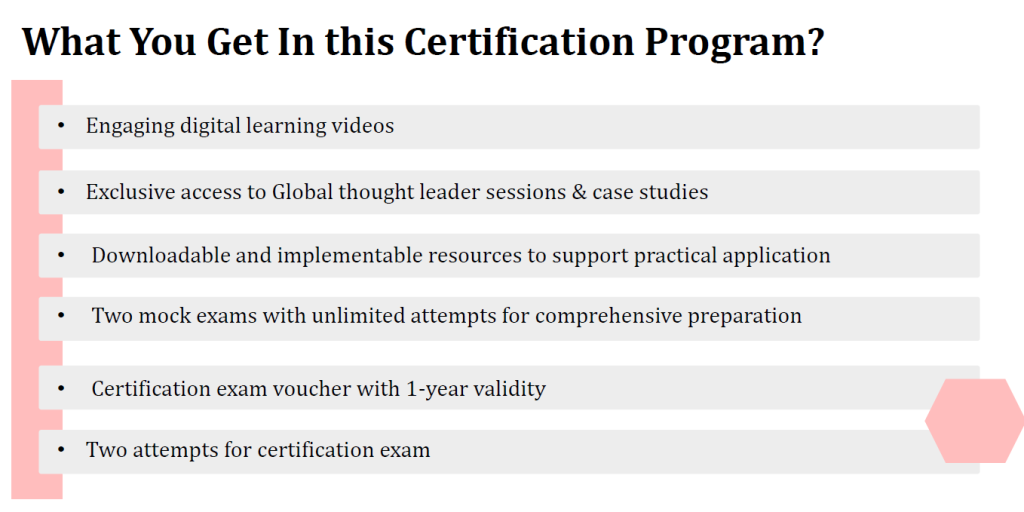Description
Global Certification Program
- E-Learning
- Globally lifetime Valid Certification
- Lifetime Valid Certification
- AI based Roleplay & Simulations
- Two Exam Attempts
Certificate of Global Leadership Excellence
The GSDC’s Global Leader Excellence Certification is a key credential for leaders navigating the complexities of modern organizational landscapes. This certification encompasses essential leadership skills such as applying leadership theories, effective communication, strategic decision-making, and leading change. With a focus on practical applications like team dynamics and innovation management, it equips leaders with the necessary tools for success.
By emphasizing real-world skills and continuous learning, the Global Leader Excellence Certification signals a leader’s dedication to excellence and adaptability in leadership roles. It positions certified individuals for career advancement, highlighting their readiness to inspire teams and drive organizational goals in a dynamic business environment.
Learning Objective
❑ Understand key leadership theories and identify personal leadership styles.
❑ Enhance communication and relationship-building skills.
❑ Lead and manage high-performing teams effectively.
❑ Apply strategic thinking and planning in leadership roles.
❑ Navigate organizational change and drive innovation.
1.Foundations of Leadership:
• Introduction to leadership theories
• Self-assessment of leadership styles
• Reflection on leadership journeys
• Communication tools for team engagement
• Relationship-building strategies
• Johari Window and Trust Equation
2.Leading High-Performing Teams:
• Team-building exercises for trust and collaboration
• Team assessment tools (e.g., Belbin Team Roles)
• SMART goals and objective setting with OKRs
• Performance appraisal techniques
• Coaching techniques for performance improvement
3.Strategic Leadership and Decision-Making:
• SWOT analysis for organizational assessment
• Strategic planning tools (Balanced Scorecard, Strategy Maps)
• Decision-making frameworks (Decision Matrix, Decision Trees)
• Application of decision-making tools in business scenarios
4.Leadership in Action and Continuous Improvement:
• Strategies for leading change and innovation
• Change management tools and techniques
• Personalized development plans for leadership growth
• Peer feedback and support mechanisms







